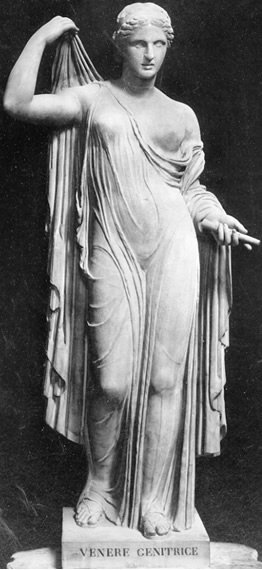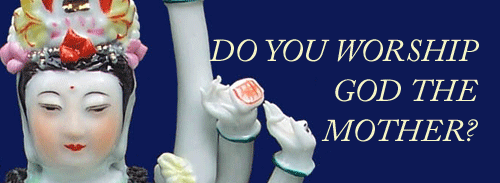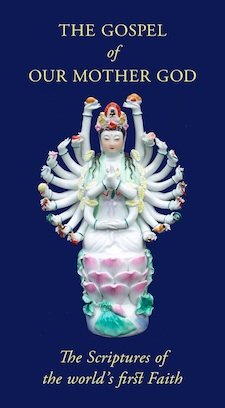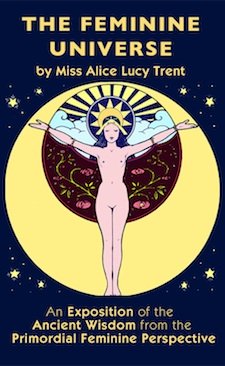Venus Goddess of Love
and the inner secret of the universe

Venus Goddess of Love has – as discussed in our main page on Venus – often been trivialised in patriarchal times as a mere "sex-goddess".
Actually, Venus is the Latin name of one of the seven fundamental principles of being: the Sushuric principle of love and beauty.
We have spoken already of Sai Sushuri as the Divine Love: that very Love which is God in the phrase "God is Love" – for each of the Seven Janyati is Our Mother God Herself under a particular aspect.
Here we wish to consider Venus Goddess of Love in a slightly different light: not merely as Creatrix, but as the very "motive-force" behind creation; the reason why there is a universe and not nothing.
In speaking of the "motivation" behind creation we are clearly on ground properly termed "esoteric", and we should beware of over-literalism. Nevertheless, the importance of Love, and the Sushuric principle, is so little understood in the current world that it seems worthwhile to give some indication of its truly fundamental nature.
We have already spoken of the Creative symbolism surrounding Venus Goddess of Love and its relation to the symbolism of Our Lady Mary, whose Image is also closely related to that of the Primordial Creatrix. We have noted that the Orphics saw Venus/Aphrodite not as a goddess who rules over carnal love but rather as the cosmogonic goddess who gives the irresistible urge to the Aethyr to create forms out of the substance of the Earth.
This is fundamental to the metaphysical understanding of being: all things are a marriage of form (or Essence) and substance. While substance is the underlying "stuff" of being, the Essences, or Archetypes are what give it the shape of all the "ten thousand things" that constitute a universe.
But why does this process take place at all? The Vedic tradition explains creation as ultimately the "play" (lila) of God, which is why our Mother God is known as Lalita: She Who plays.
However, this can still leave the question "why does She play"?
While accepting that ultimately, from our human standpoint, this question is unanswerable, the traditionalist philosopher Martin Lings has suggested that in this one respect Sufism comes a stage nearer to an answer than the Vedic tradition itself, with the formulation attributed to God:
"I was a Hidden Treasure and desired to be known. Therefore I created a Creation that I might be known."
The word for "known" here literally means "loved" (itself an interesting reflection on the interplay and occasional ambiguity between Sai Mati and Sai Sushuri: the Principles of Knowledge and Love respectively).
Thus, at least on the level of a certain bhaktic understanding, the Divine Creative urge lies in the most fundamental love-desire.
It is interesting also that this revelation is associated with Rumi, who also wrote:
Woman is the radiance of God, she is not your beloved.
She is the Creator – you could say that she is not created.
and who represents Moses as addressing God as "Mother".
When we look at the Name of Venus Goddess of Love, we find that it comes from the Indo-European root √wen: to desire, take pleasure, love. The root gives such important words as "wish" and "win" (Germanic Wunsch); "venerate"; Latin "uenare", to hunt (cf English “venison” – an important concept in the light of the primordial doctrine of the Hunt being the chase of the Spirit after the soul, which is why Dia-na is God the Huntress); Sanskrit vanas, "loving". The root is also found in the Celtic, and probably the Slavic and Hittite groups of languages.
We have, then a root indicating desire at the most primary level. That desire of knowing/loving that lies at the root of the creative urge, which is why Venus Goddess of Love – the Sushuric Principle – is She Who instils in the Aethyr (the non-material Element that gives rise to the four material elements) the "desire" to produce forms.
Thus, while the ancient title Venus Genetrix was interpreted in later patriarchal times in terms of human reproduction and "fertility", it has originally a far deeper significance. Naturally, the two meanings are not entirely separate, and the association of generation with desire on the human level is reflective of the divine mystery of Desire-Creation (just as all truly human characteristics are reflective of Divine prototypes).
Nevertheless the two-dimensional "fertility cult", beloved of reductionist "historians of religion", is not primitive but decadent. It represents not the origins of religion but the misunderstandings and oversimplifications of a later and all-too-human "paganism" – the product of a culture whose errors have much in common with those of the current world.
 As is suggested in our main page on Venus Goddess of Love, patriarchal disrespect for Our Mother God led the Classical world into the trivialization and ultimate decline of its own Tradition.
As is suggested in our main page on Venus Goddess of Love, patriarchal disrespect for Our Mother God led the Classical world into the trivialization and ultimate decline of its own Tradition.
While the underlying Mystery of Creation is something no unperfected being can expect fully to understand, contemplation of the Sushuric Principle, as embodied in Venus Goddess of Love, brings us closer to it than anything else can.
It is for this reason that Sushuric and Creative symbolism are united in such figures as Our Lady Mary: and why Venus and Aphrodite, like Sri Lakshmi are "born from the sea" – i.e. the Deity makes Herself manifest along with the Waters of first creation.
Venus Goddess of Love is also Goddess of Beauty and those familiar with the Philosophy of Beauty will readily understand the connexion between the Divine Beauty, which is the Source of all earthly beauty and the Hidden Treasure which is Our Mother God, and which desired to become known (loved), thus giving rise to Creation.
See also:
Creation Myths and the Virgin Mary
Or go to the main page on Venus
Please Support the Chapel of Our Mother God
Send Questions or Comments on Venus Goddess of Love
Chapel of Our Mother God Homepage
All written material at the Chapel of Our Mother God is copyright. Should you wish to reproduce any portion please contact us for permission.
The Many Names of Dea
Gospel of Our Mother God
The Gospel of Our Mother God is a collection of inspirational texts, prayers and daily inspiration for the Mother-Faith devotee or household.
The Feminine Universe
The Other Philosophy
Everything you have ever heard comes out of the patriarchal world-view. Its materialism, its religion, even its feminism. Here is the other way of seeing the world; the natural way: the way that everyone saw things before patriarchy and will again when patriarchy is long forgotten.



